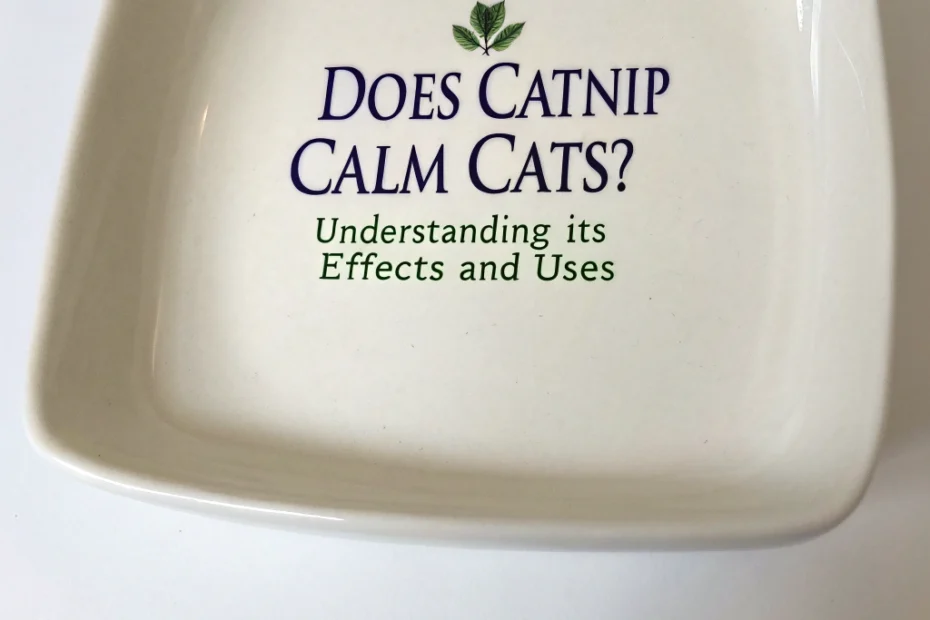At-a-Glance
Catnip is a popular herb that many cat owners use to enrich their feline’s environment. But does catnip calm cats? While catnip is known for its stimulating effects, it may also have calming properties for some cats. Understanding how catnip works and its potential benefits can help you decide if it’s a suitable option for your pet.
How to Choose
When selecting catnip, consider the form that best suits your cat’s preferences. Catnip is available in several forms, including dried leaves, sprays, and toys infused with the herb. Each form has its own advantages. Dried leaves are versatile and can be sprinkled on scratching posts or bedding. Sprays are convenient for applying to specific areas, while toys provide interactive play.
Consider your cat’s behavior and preferences. Some cats may respond more positively to one form over another. Additionally, look for high-quality catnip that is free from additives and pesticides to ensure your cat’s safety.
Safety & Setup
Using catnip safely involves understanding your cat’s reactions and setting up an environment where they can enjoy it without stress. Start with a small amount to gauge your cat’s response. While catnip is generally safe, some cats may become overly excited or aggressive. If this happens, remove the catnip and try again later.
Ensure that the area where you offer catnip is safe and free from hazards. Avoid placing catnip near fragile items or in areas where your cat could injure themselves during play.
Core Pillars
Catnip’s effects are due to a compound called nepetalactone, which binds to receptors in a cat’s nose and triggers a response in their brain. This can lead to behaviors such as rolling, purring, and rubbing. For some cats, after the initial excitement, catnip may help them relax and unwind.
It’s important to note that not all cats are affected by catnip. Sensitivity to catnip is hereditary, and about 50-70% of cats will respond to it. Kittens and older cats may show less interest in catnip.
Placement & Environment Tips
To maximize the benefits of catnip, strategically place it in areas where your cat feels comfortable and safe. Consider placing catnip-infused toys or sprinkling dried catnip in your cat’s favorite resting spots. This can encourage your cat to relax and enjoy their environment.
Avoid overexposure to catnip, as frequent use can lead to diminished effects. Offering catnip once a week can help maintain your cat’s interest and ensure they continue to enjoy its benefits.
Comparison with Alternatives
Catnip is just one option among many cat calming and anxiety relief products. Other alternatives include pheromone diffusers, calming collars, and herbal supplements. Each product works differently, and what works for one cat may not work for another.
Pheromone diffusers release synthetic versions of natural cat pheromones, which can create a sense of security. Calming collars often contain herbs like lavender and chamomile, which may help reduce anxiety. Herbal supplements can support relaxation but should be used under veterinary guidance.
FAQs
How often can I give my cat catnip?
It’s best to offer catnip in moderation, about once a week, to maintain its effectiveness and prevent your cat from becoming desensitized.
Can catnip be harmful to cats?
Catnip is generally safe, but it’s important to monitor your cat’s reaction. If your cat becomes overly excited or aggressive, remove the catnip and try again later.
Why doesn’t my cat react to catnip?
Not all cats are sensitive to catnip. Sensitivity is hereditary, and some cats simply do not respond to it.
What to Do Next
If you’re considering using catnip as a calming aid, start by introducing it in small amounts and observing your cat’s reaction. If your cat enjoys catnip and it seems to have a calming effect, you can incorporate it into their routine. Remember to use it in moderation and ensure your cat’s environment is safe and comfortable.
For cats that do not respond to catnip or need additional support, explore other calming products and consult with your veterinarian to find the best solution for your pet’s needs.
Disclaimer: Always consult your veterinarian for personalized advice regarding your cat’s health.
